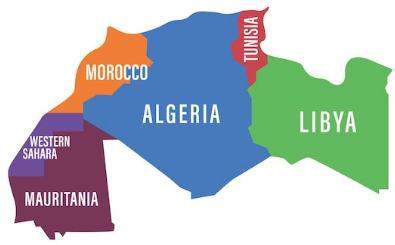
Posted On : Nov 8 2020
AQIM: Navigating the Complex Landscape of Terrorism in North Africa
Al-Qaida in the Lands of the Islamic Maghreb (AQIM) is a prominent extremist group that has established its presence in North Africa, particularly in the Sahel region. With its roots in Algeria, AQIM`s evolution, activities, and impact have made it a significant player in the global fight against terrorism.

Formation and Objectives
Emerging from the ashes of the Algerian Civil War, AQIM was originally known as the Salafist Group for Preaching and Combat (GSPC). In 2007, it pledged allegiance to al-Qaida, expanding its focus to encompass broader jihadist ideologies. AQIM's primary objectives include overthrowing secular governments in the Maghreb and Sahel regions, establishing Islamic rule, and expelling Western influence from Muslim-majority countries.
Operational Activities
AQIM's operational activities have encompassed a range of tactics, including bombings, kidnappings, and attacks on military and civilian targets. The group has targeted foreign nationals, particularly in the Sahel region, as well as local security forces and government officials. Its attacks have led to destabilization, fostering an environment conducive to recruitment and ideological propagation.
Regional Implications
AQIM's presence in the Sahel has had far-reaching implications for regional security. The group's ability to exploit porous borders and collaborate with other extremist groups, such as Boko Haram and Al-Mourabitoun, has created a complex security challenge. Kidnappings for ransom and arms smuggling have funded AQIM's activities, further fueling instability in the region.
Counterterrorism Efforts
Governments in the Sahel and Maghreb, in collaboration with international partners, have undertaken concerted efforts to counter AQIM's influence. These include joint military operations, intelligence sharing, and initiatives to address the underlying socio-economic factors that contribute to the group's appeal.
Challenges Ahead
AQIM's persistent presence highlights the enduring challenge of combating terrorism in North Africa. Geopolitical complexities, porous borders, and the group's adaptability present obstacles to comprehensive counterterrorism efforts.
Conclusion
AQIM's evolution from a local insurgency to an affiliate of al-Qaida underscores the fluid nature of contemporary terrorism. The group's activities in the Maghreb and Sahel regions have underscored the need for both regional and international cooperation to address its threat. By focusing on comprehensive strategies that encompass military, intelligence, and socio-economic dimensions, stakeholders can work together to mitigate AQIM's impact and pave the way for greater security and stability in North Africa.
No Comments Added




















